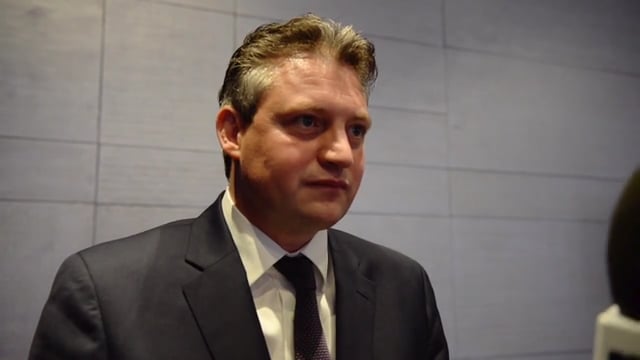[WATCH] Minister hints at significant changes in Air Malta restructuring
Malta’s national airline offers a good and punctual service, but ‘reality is what it is’ Konrad Mizzi says as he insists that Air Malta needs to focus on making money


Whilst all options for Air Malta need to be considered, the emphasis is on the country’s national airline to make money, Tourism Minister Konrad Mizzi has said.
Speaking at the hotels performance seminar, organised by the MHRA, Mizzi said that he believed that the airline was essential for the country’s people and the business community alike.
“I believe there is space for a niche Malta-based carrier that can connect us to Southern Europe and North Africa,” said Mizzi, adding that Malta should continue to operate regular flights to strategic airports across Europe.
“Air Malta needs to focus on making money,” he insisted.
He added that while the people, as well as the airline’s employees were proud of Air Malta, with the airline offering a good and punctual service, it had also been “losing money for more than ten years”.
“The reality is what it is,” he said. “The do nothing approach on Air Malta is not an option, and if we do nothing it will be insolvent in no time.”
According to the minister, the airline’s restructuring would emphasise the need for revitalising the airline and making it fit for purpose in the in the modern world.
“We have mandated the leadership team to make all the necessary changes. The changes will cut across all levels of the airline.”
Mizzi said the airline would be looking to open new routes, including some which had been closed in the past, adding that “growth would be key” for Air Malta.
He said that as part of the restructuring, a number of “organisational changes” will have to be made and that the government would be speaking to unions before speaking to other shareholders.
“We will be fair with employees,” said Mizzi. “Employees understand there is a need for change.”
Moreover, Mizzi said that once the process has been completed, the government would be in a better position to negotiate with a strategic partner, adding that it would be flexible on the nature of the partnership sought.
‘Be the best in class’
Mizzi stressed that it was the government’s intention to “strive for excellence in all the categories” and would therefore be working to ensure that the country’s infrastructure is adequate enough for this to happen.
“You want to be the best in class in Europe and the Mediterranean region and we will work with you to ensure that you are in fact the best in class,” he told hoteliers.
Mizzi said that the Malta Tourism Authority would also continue to work develop niche markets, as well as to invest more in local events and the creation of more attractions in Malta.
Turning to the challenges faced by the industry, Mizzi said the government had taken not of complaints related to cleanliness amongst others. Furthermore, he said the government would also be working to improve the availability of skilled workers for the industry, through the continued evolution of the Institute for Tourism Studies (ITS).
“ITS will have a teaching hotel adjacent to it,” he said, adding that public private partnerships, together with other foreign partners would be sought out for the institute to offer the “best possible courses”.
‘Malta needs to be more competitive' – Tony Zahra
Malta Hotels and Restaurants Association president Tony Zahra warned that competing countries would continue to outperform Malta unless it improved the quality of its product.
He stressed that while Malta was doing well, so were its competitors, with countries like Cyprus, Italy, Greece and Spain, all registering a larger growth in tourism than Malta.
According to Zahra the industry’s “demand drivers” were safety and quality, and while Malta could offer the former, quality was still lacking in a number of areas.
He said that Malta needs to be in a position to offer a unique product and make the necessary jump in quality, including in the level of cleanliness.
“In Malta, we have people who are paid to collect the rubbish, but they never collect it. We all need to pull our socks up and make the improvement.”
On Air Malta, Zahra said that it was what made the difference between Malta and other countries.
“It was the big push that made the industry in Malta,” said Zahra, who added that while other airlines were today servicing Malta, they were only doing so because it was profitable for them.
Zahra questioned why the government was intent on “travelling the world” to find strategic partners for Air Malta, when there were many local investors who were willing to invest in the airline.



.png)

















